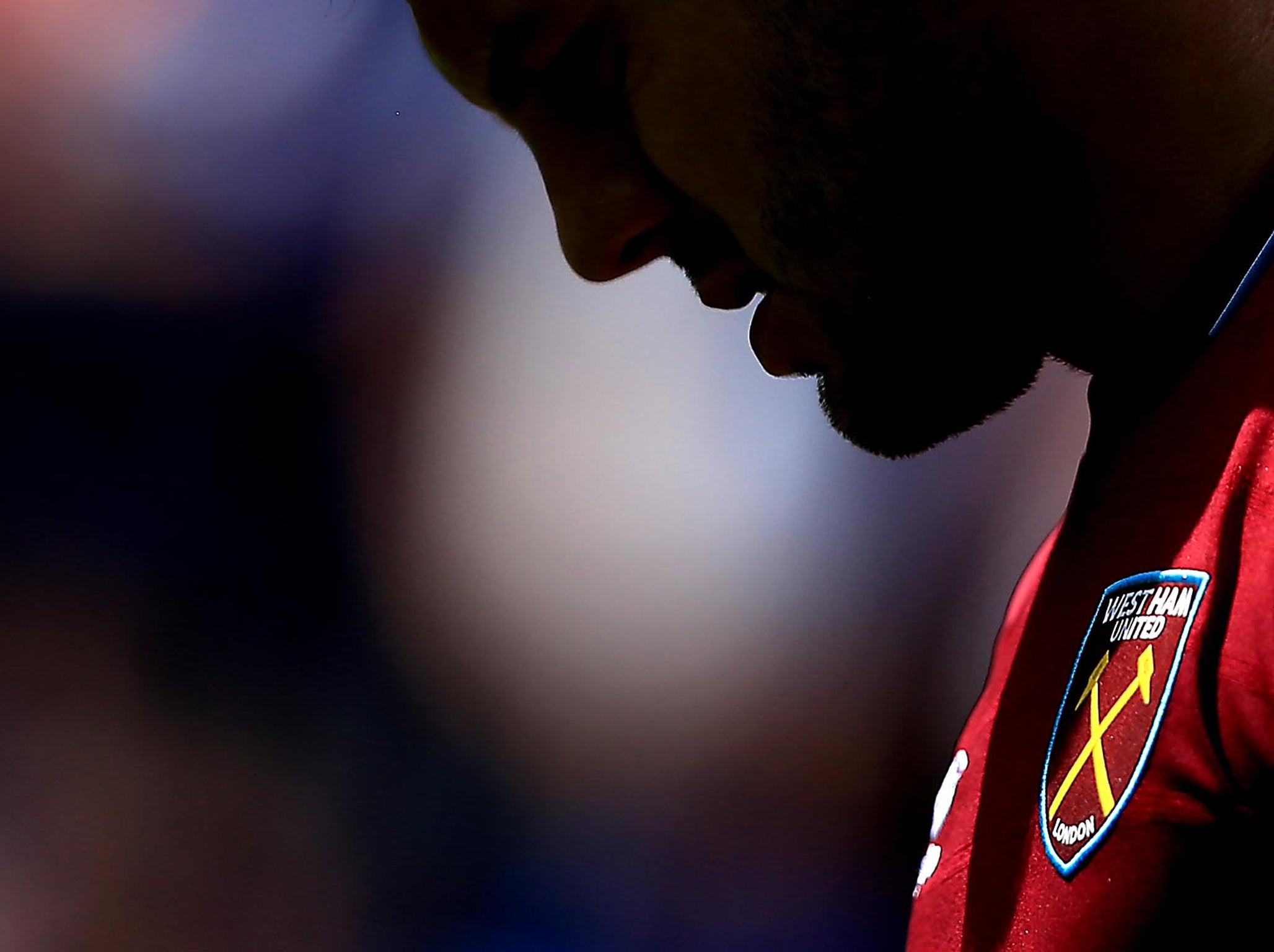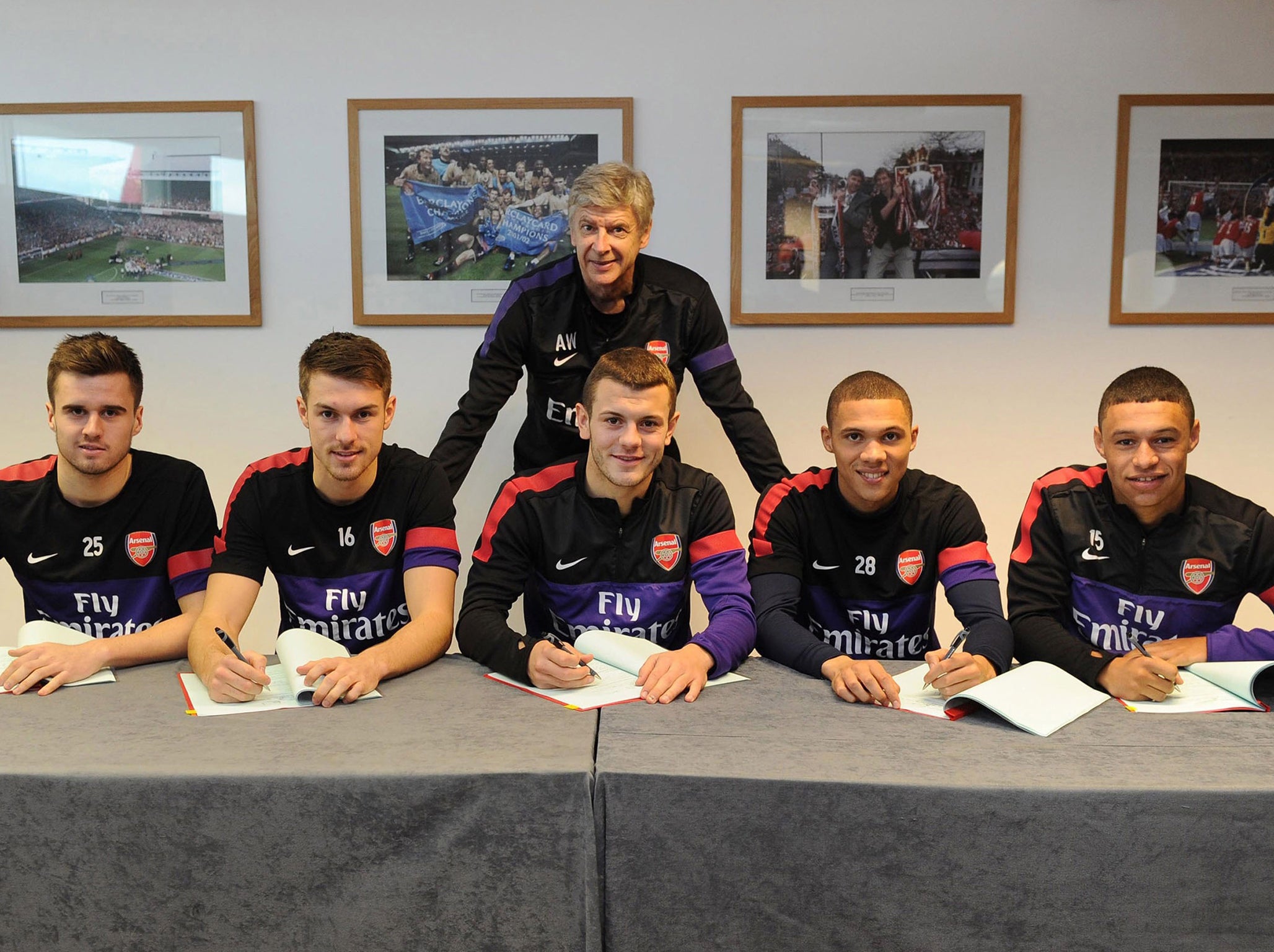Arsenal come up against West Ham’s new protagonist Jack Wilshere, but for how long will the respect last?
Wilshere’s significance to Arsenal extended so far beyond the numbers. He was fêted by fans not necessarily for how he played but what he represented

Your support helps us to tell the story
From reproductive rights to climate change to Big Tech, The Independent is on the ground when the story is developing. Whether it's investigating the financials of Elon Musk's pro-Trump PAC or producing our latest documentary, 'The A Word', which shines a light on the American women fighting for reproductive rights, we know how important it is to parse out the facts from the messaging.
At such a critical moment in US history, we need reporters on the ground. Your donation allows us to keep sending journalists to speak to both sides of the story.
The Independent is trusted by Americans across the entire political spectrum. And unlike many other quality news outlets, we choose not to lock Americans out of our reporting and analysis with paywalls. We believe quality journalism should be available to everyone, paid for by those who can afford it.
Your support makes all the difference.Fifteen minutes. That’s how long it took Unai Emery to end Jack Wilshere’s 17-year stay at Arsenal earlier this summer, in one of the small red-painted office rooms at the club’s London Colney training ground. “Our conversation was very clear,” Emery revealed on Thursday. “For me, it was important for him to become a protagonist in a new project.”
Wilshere’s story is — sadly — one of unfulfilled potential. For several reasons, he never came close to replicating the performances he produced with eye-catching regularity during the 2010/11 season. In particular that apparently career-defining display against Barcelona in the Champions League, a match so venerated by Arsenal supporters that it is a surprise to find the highlights on YouTube in glorious technicolour, rather than evocative black and white from some distant past.
But then came the injuries. A second loan spell away from the club. And the controversies — ranging from smoking in a swimming pool to two police cautions — which you suspect were the result of boredom more than anything else. He started just 13 Premier League games for Arsenal in his last three seasons in north London, before Emery allowed him to leave on a free.
And yet Wilshere’s significance to Arsenal extended so far beyond the numbers, which were always middling. He was fêted by supporters not necessarily by how he played but for what he represented: the local lad with a fluidity and vision that symbolised the very best of Arsène Wenger’s Arsenal teams, who just so happened to hail from down the road in Hitchin and really, really hate Tottenham.

Wilshere was also the beating heart of that glorious, doomed Wenger project to refashion his third great Arsenal side out of little more than raw talent and teenage exuberance, a team thrillingly fit to burst with several outstanding local talents. Everybody remembers the photograph: a fatherly Wenger stood above the ‘British core’, sat signing their lucrative contract extensions. And everybody can remember who occupied pride of place in the centre of the group. Wilshere was the heartbeat of the side for a reason.
Emery knows all of this, of course. He is acutely familiar with what Wilshere promised, and what he has come to represent, and why that is important. And he understands how sensitive a subject Wilshere’s exit remains, and of the importance of picking his words carefully.
Back at Colney on Thursday, ahead of Saturday’s derby with Wilshere’s West Ham, Emery readily answered one question on the subject, tolerated a second and displayed a flash of irritation at the third. “I think we have closed this conversation in this moment,” he replied, when asked somewhat impossibly of whether or not he is disappointed not to have Wilshere as an option on Saturday. “Now I am concentrating on us and our players. I wish him all the best.”
His apprehension is understandable. After all, his start at The Emirates has been less than ideal, and defeat to a Wilshere-inspired West Ham tomorrow would undoubtedly prompt much hand-wringing from Arsenal’s notoriously neurotic fanbase. He took a gamble by ending Wilshere’s long stay at the club, even if it was a gamble many others would have taken.
Emery appeared to acknowledge that with his insistence that a player of Wilshere’s pedigree deserved to be a ‘protagonist’ — a word often used by Spanish speaking players and managers to refer to the main man, the star that makes something happen — at another club, rather than sat on Arsenal’s substitutes bench, waiting for the opportunity to displace either Mesut Ozil or Aaron Ramsey.

“It is important for him to be a protagonist because maybe here he would not be the protagonist each match out on the pitch,” Emery added. “It is more competitive situation for him to play. I am happy if he finds [an opportunity to be the] protagonist at West Ham. So our first conversation was in this direction.
“Then there was respect from everyone. Respect for his decision, respect for my decision. And then, we were speaking clearly and open for many questions between Jack and me. He chose what the best was for him in his future. I know that the supporters like him and have this respect also. So I think that there is a good reception for him here.”
How long that respect endures on Saturday is poised to be one of the game’s most intriguing subplots. Across town, Wilshere has also been speaking of respect, but football’s greatest protagonists are hardly known for their deference. Loathe to leave Arsenal in the first place, this is his opportunity to prove Emery wrong, to wind back the clock and beguile a familiar crowd yet to truly accept the man who decided to cut him loose. Emery must hope his gamble is a successful one.
Join our commenting forum
Join thought-provoking conversations, follow other Independent readers and see their replies
Comments